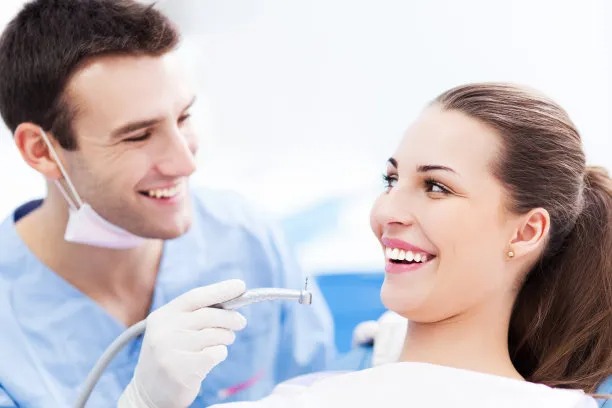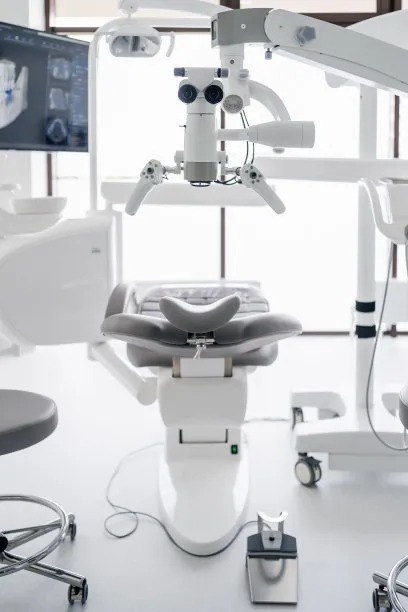Summary: Dental implants have evolved significantly, providing a reliable solution for restoring smiles and improving oral health. This article delves into four main aspects of dental implant treatment: their versatility in addressing various dental issues, the technological advances enhancing the procedure, the numerous oral health benefits provided, and the psychological impact of restoring one’s smile. Through understanding these facets, patients can appreciate dental implants as a transformative option designed to meet individual needs and improve their quality of life.
1. Versatility in Dental Restoration

Dental implants are a versatile solution for a variety of dental issues, making them applicable to many patients. They can effectively replace missing teeth, whether due to injury, periodontal disease, or decay. Unlike traditional dentures or bridges, implants function like natural teeth, allowing patients to enjoy their favorite foods without restriction. This adaptability is essential for individuals with varying dental needs.
Moreover, dental implants are not just limited to single-tooth replacements; they can also support multiple teeth through implant-supported bridges or dentures. This capability makes dental implants an excellent option for those missing several teeth, providing a comprehensive solution that enhances both functionality and aesthetics in one treatment. The ability to customize treatment plans based on the patient’s unique oral health circumstances is a significant advantage.
In addition to addressing cosmetic concerns, implants play a vital role in maintaining the integrity of the jawbone. Missing teeth can lead to bone loss over time, altering facial structure and leading to further dental complications. By acting as artificial tooth roots, dental implants stimulate the jawbone, helping to prevent degradation and ensuring long-term oral health.
2. Technological Advances in Implant Procedures
The field of dental implants has witnessed remarkable technological advancements that enhance the treatment process. One key innovation is the use of 3D imaging and computer-assisted design, allowing dentists to plan surgeries with precision. This technology provides a clear view of the patient’s mouth, enabling tailored treatment strategies that minimize complications.
Furthermore, the development of biocompatible materials has improved the success rates of implants significantly. Modern implants are typically made from titanium, which integrates seamlessly with jawbone tissue. This material choice reduces the risk of rejection and promotes quicker healing times, strengthening patient recovery and ensuring the longevity of the implant.
Another noteworthy advancement is the introduction of minimally invasive techniques. These procedures are designed to reduce surgery time and discomfort for the patient, leading to a more positive overall experience. Techniques such as flapless surgery and guided implant placement are revolutionizing how dental professionals approach implant placement, allowing for faster recoveries and better outcomes.
3. Oral Health Benefits of Dental Implants
Beyond their aesthetic appeal, dental implants provide numerous oral health benefits that are vital for overall well-being. First and foremost, they help maintain surrounding teeth stability. When a tooth is lost, adjacent teeth can shift into the gap, leading to misalignment and further dental issues. Implants preserve the space and prevent neighboring teeth from becoming compromised.
Additionally, dental implants reduce the risk of gum disease. Traditional dentures can lead to plaque buildup if not cleaned properly, whereas implants are easier to maintain with regular brushing and flossing. This ease of care contributes to better oral hygiene and reduces the chances of developing gum-related complications.
Implants also contribute to improved chewing function, enhancing dietary choices for patients. Having secure, stable teeth allows individuals to enjoy a broader range of foods without the fear of slippage or discomfort. This dietary improvement plays a significant role in encouraging a healthy lifestyle and nutritional balance.
4. Psychological Impact of Restoring Your Smile
The psychological benefits of restoring one’s smile through dental implants cannot be overstated. The confidence gained from having a complete and natural-looking set of teeth can profoundly affect a person’s self-esteem. Many individuals report feeling more social and engaged after undergoing implant procedures, highlighting the significant emotional uplift associated with improved aesthetics.
Furthermore, a renewed smile can positively affect relationships, both personal and professional. Individuals are often more willing to smile, speak, and communicate openly when they feel good about their teeth, creating a ripple effect on their interactions and overall quality of life.
Overall, understanding the psychological benefits reinforces the importance of dental implants as more than just a functional restoration; they are a transformative solution that enhances life quality. A beautiful and functional smile contributes to both mental well-being and social connections, creating a holistic approach to health and happiness.
Summary:
In conclusion, dental implant treatments offer remarkable benefits that go beyond traditional dental solutions. Their versatility caters to various dental problems, while advancements in technology ensure safe and efficient procedures. The multitude of oral health benefits, combined with the significant psychological impacts, underscores the importance of considering dental implants for anyone seeking to restore their smile and improve their overall health.
This article is compiled by Vickong Dental and the content is for reference only.
Vickong Dental
Vickong Dental is a large medical group established in Hong Kong in 2008 by professors from well-known medical universities in Guangdong and Hong Kong, as well as medical doctors from key national '985' universities (including Master's supervisors and senior professors). The chain of branches brings together expert dentists with PhDs and Master's degrees from Hong Kong and Mainland China, committed to providing high-quality dental treatment.
"Vickong Dental Practices the University Motto of 'Healing and Serving Society,' with a Stable Operation for Sixteen Years. It Has Been honored with Hong Kong Enterprise Leaders's Choice,' and is a Global Trusted Implant Center for the Nobel Implant System. Recommended by Hong Kong Metro Broadcast and Guangdong Television, it Serves Customers from Over Thirty Countries and Regions, Gaining the Trust and Favor of Citizens from the Guangdong-Hong Kong-Macau Greater Bay Area and Surrounding Cities.

Thousands of customers' unanimous praise
The most recognized and highly recommended dental service by customers in the Guangdong-Hong Kong-Macau Greater Bay Area
We Ensure You Receive Detailed Care and Attention Here
Hong Kong standards, Shenzhen prices, Your Trusted English-speaking dentists

Vickong Dental Medical-Grade Instrument Disinfection Process
Vickong Dental Medical-Grade Instrument Disinfection Process

Vickong Dental Chain: A Warm and Comfortable Environment for Treatment






Appointment Hours

Q&A
Why choose Vickong Dental?
Vickong Dental practices the university motto 「Medicine to Benefit Society」, with each branch bringing together highly qualified dentists with doctoral and master’s degrees from Hong Kong and the Mainland, and has maintained seventeen years of steady operation。Recipient of 「2024 Hong Kong Enterprise Leaders Brand」, 「2025 Hong Kong Enterprise Leaders Brand」, a Nobel Biocare Global Trusted Implant Center, and a brand recommended by Metro Radio Hong Kong and Guangdong TV。
To date, we have served customers from more than thirty countries and regions,earning exceptionally high word-of-mouth recognition and trusted recommendations from residents across the Guangdong-Hong Kong-Macao Greater Bay Area and surrounding cities
We have eight major branches in Zhuhai、Shenzhen,and a consultation and service assurance center in Hong Kong,so you can book a free consultation at any time for any questions,which is very reassuring.
If I do not accept the quotation after the CT scan, will I be charged??
No! As long as the actual treatment has not started, you will not be charged any fees.
Will there be any additional charges during the treatment process?
No, there won’t be any additional charges. Before treatment begins, we will clearly explain the treatment plan and its corresponding fees. Only after the patient agrees and signs the consent form will we proceed with the dental service.
Can I pay in Hong Kong dollars?
Yes. Vickong Dental accepts payment in Hong Kong dollars. The amount will be converted based on the exchange rate of the day, and the applicable rate will be clearly communicated to you in advance.
Can I reschedule my appointment at any time?
Yes. Please contact us via **WeChat** or **WhatsApp** as early as possible, providing your original appointment time and details, along with your preferred new date and time slot for rescheduling.













